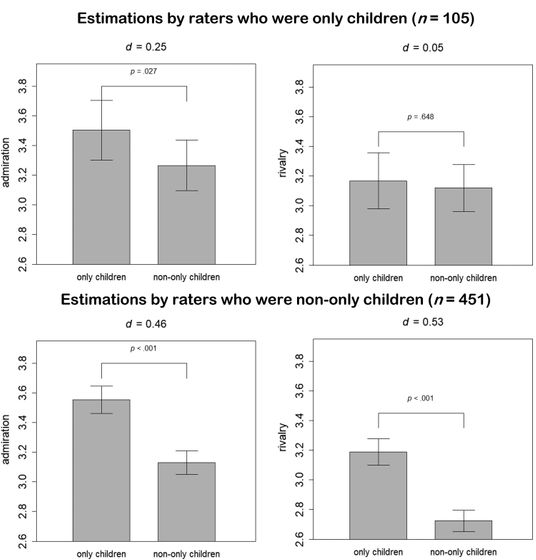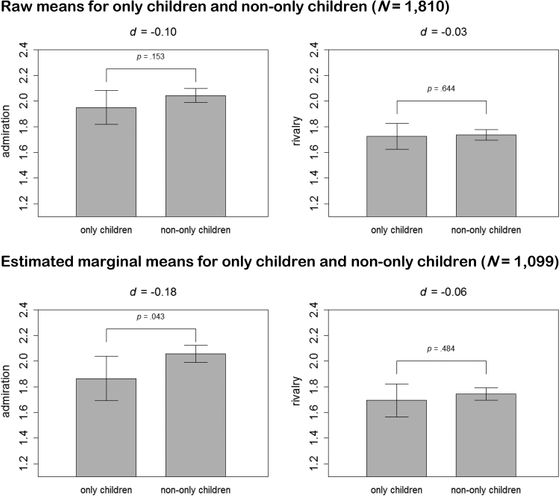Research results that the theory that 'one child is self-loving' is an error

by
Previous studies by the 'one-child is self-love strong, become self-centered' might be said to be. A study was announced to deny that the theory of “one child is self-loving” is “prejudice”.
The End of a Stereotype: Only Children Are Not More Narcissistic Than People With Siblings-Michael Dufner, Mitja D. Back, Franz F. Oehme, Stefan C. Schmukle,
https://journals.sagepub.com/doi/10.1177/1948550619870785
New study debunks myth that only children are more narcissistic than kids with siblings | EurekAlert! Science News
https://eurekalert.org/pub_releases/2019-10/sfpa-nsd101519.php
A research group such as Michael Daphner, who is studying psychology at the University of Leipzig, Germany, firstly, to confirm whether the popular theory that “one child is self-loving” is common, 105 children only and 451 non-children only. An online survey was conducted for a total of 556 participants. We conducted an online questionnaire with the content 'How much do you think personalities are different between single and non-single children?'
The result is the following graph. The left side of each column is a summary of a questionnaire about “self-loving praise” and the right side is “self-loving competition awareness”. The top two are answers by one child and the bottom two are responses by non-one child. The left bar graph shows the response rate of “applicable to only children”, and the right bar graph shows the ratio of “applies to non-only children”. In both self-loving praises and self-competitive consciousness, there are more respondents that “it applies to only one child”, and even one child himself has the idea that “one child is self-loving”.

Next, Mr.
In the second survey, not only whether the participant is an only child, but also social factors that are said to affect self-loving tendencies, such as “sex”, “age”, “social status of parents”, “ We also collected data on the level of education of parents, whether they are from urban or rural areas, whether they are single-parent households, or whether they are from migrants (whether at least one of the parents is non-German).
The result is shown below. The top row is the raw survey results, and the bottom row is the survey results that include social factors. Not only the lower graph, which excludes the influence of social factors, but also the upper graph, where no adjustments were made to the data, resulted in a slightly lower tendency for self-loving children than non-only children.

Daphner said about the second survey: “By using a large and comprehensive data set and thoroughly analyzing the differences in self-loving between single and non-only children, the results clearly contradicted the precepts. He said, “The only child is self-loving” is the only stereotype that is unfounded.
Another study also raises questions about the stereotype that “the only child is self-centered”.
Is the theory that “the only child is selfish and self-centered” true? -GIGAZINE

by Luna Lovegood
Mr. Daphner said, “Because self-loving tendencies are 'rooted', that is, socially unsuitable characteristics, being a self-loving person is socially disadvantageous. Should not be labeled as self-loving to one child for unreasonable reasons, 'accused some scientists and journalists spreading stereotypes.
Related Posts:
in Science, Posted by log1l_ks






